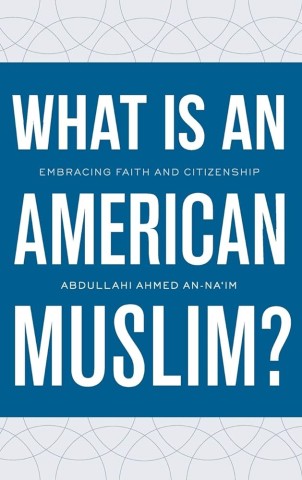What is an American Muslim?
Abdullahi Ahmed An-Na'im's "What is an American Muslim? Embracing Faith and Citizenship" (2014) is an Oxford publication, written in what seems like a world away in terms of US identity politics. The book is largely not what the title reads "What is..." but rather "What should...". Although the author has produced some interesting works (for example, a 1995 book Human Rights in Cross Cultural Context), this one does not stand out. In the ten years since publication, there have been 26 citations, several of which are critical book reviews. This book sat on my shelf for some years, and I can't recall where or how this book came to my attention. Some (debate-starting) notes:
"To realize this vision of citizenship and meaning for themselves, and to uphold it for others, American Muslims must join general political and social life—in solidarity and common cause with other citizens—and begin exercising their rights to democratic self-governance. To earn the rights of citizenship, Muslims must assume the responsibilities of citizens. In engaging a proactive citizenship, American Muslims should seek to integrate on their own terms as persons and communities, rather than abandoning their religious self-determination through passive assimilation. This includes the constant evolution and reformation of American Muslims' identities in relation to national identity." (p. 6-7)
"The idea of an Islamic state that enforces Sharia as the positive law of the state is, from an Islamic point of view, both conceptually untenable and practically counterproductive. It is untenable because, once Sharia norms are enshrined in law, they cease to be the religious law of Islam and become the political will of that state. Moreover, given the wide diversity of opinion among Muslim scholars and schools of thought, enacting any of those norms as state law will mean having to select among competing views that are equally legitimate. Since that selection will be made by whoever happens to be in control of the state, the outcome will be political, rather than religious. Why will this process be counterproductive? By suppressing competing views, it will necessarily deny some Muslims their religious freedom. I am therefore advocating the institutional separation of religion and the state, while recognizing and regulating the unavoidable connection between religion and politics." (p. 22)
"My own answer for such questions, for which I believe to be religiously accountable, is that Islamic religious doctrine is historically contextual, a product of human interpretation, and not immutable or divine as such. Accordingly, I would first oppose the application of any Sharia norm as the positive law of the state, as explained in chapter 1. Second, I would oppose the community-based practice of dated human interpretations of Sharia that are no longer appropriate in today's context." (p. 172)

